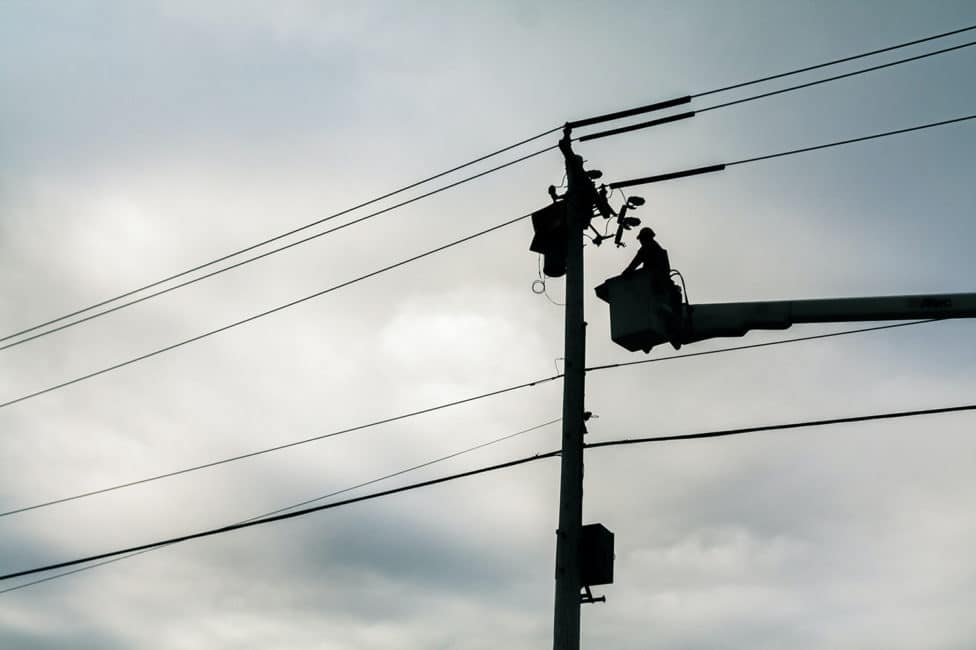A Lineworker has one of the most critical jobs in the country – they ensure power lines are operational to ensure everyone has access to electricity. A Lineworker installs, maintains, repairs and patrols electrical distribution and submission systems. After a natural disaster that causes power outages, a Lineworker will act as a first responder who restores power to neighbourhoods.
The future of electricity transmission and distribution will change drastically over the next decade. Consequently, several large transmission infrastructure projects have been approved in areas of Australia and will commence in the coming years. For example, several organisations in the industry will improve and secure the country’s transmission infrastructure. The upcoming interconnector project will create around 800 regional construction jobs, and project delivery is expected between 2022 and 2024.
Typical Duties of a Lineworker Apprenticeship
As a Lineworker apprentice, your duties will include assisting Lineworkers in installing and maintaining power systems. You will help them by taking measurements, performing repairs, and maintaining connections. Observing them in action will enable you to learn the skills of the trade in a practical setting. In time, your employers will trust you to do the duties of a Lineworker, but you will remain under observation to ensure you are completing tasks to the highest possible standard.
Typical Entry Requirements
Prospective apprentices must have completed Year 10, as this is Australia’s legal school leaving age. The role of a Lineworker is highly technical; as a result, a Certificate III or IV qualification is necessary to learn the trade. For example, in Australia, 84 per cent of lineworkers have completed one of these courses. Additionally, many employers will prefer candidates with a driving license, as you will need to travel regularly.
If you’re seeking a career as a Lineworker, you should feel comfortable working outdoors, at heights and in confined spaces, as roles may involve climbing ladders and descending underground. The standard working hours for lineworkers is approximately 40 hours. However, there are peak periods where you may be required to work some overtime to keep up with demand. In addition, if a disaster occurs, you may also be called to work at very short notice. As a result, staying calm in stressful situations is a desirable trait. Additionally, Lineworker jobs are physically demanding; you will be required to lift and carry heavy objects, sometimes at a considerable height.
Qualified Lineworker Average Wage
A full-time non-managerial qualified Lineworker receives a median of $2,205 per week before tax. However, wages in this role vary depending on location and experience level:
Sydney, New South Wales: AU$35.00 per hour.
Melbourne, Victoria: AU$41.93 per hour.
Brisbane, Queensland: AU$26.50 per hour.
Darwin, Northern Territory: AU$37.86 per hour.
Perth, Western Australia: AU$39.72 per hour.
Canberra, Australian Capital Territory: AU$38.51 per hour.
Hobart, Tasmania: AU$37.67 per hour.
How to Become a Lineworker
A Lineworker will usually operate in the electricity, gas, water, and waste services industry, predominantly for utility companies. However, some work in the construction industry. To become a Lineworker, you should undertake an apprenticeship with a relevant employer and a registered training organisation to gain the skills and experience required.
How to Find and Get a Lineworker Apprenticeship
To get started, you should visit the Australian Apprenticeships website to find a certified Australian Apprenticeship Network Provider. An Apprenticeship Network Provider will help you locate a suitable employer and a registered training organisation, provide a contract for you and your prospective employer to sign and offer support and guidance throughout your training.
Alternatively, you can apply to an apprenticeship directly through employers in the industry, such as Western Power. However, applications for the organisation’s apprenticeship program typically occur once annually.
Certificate III Cable Jointer
Once you complete a Certificate III qualification in Cable Jointing, you will have the skills and experience allowing you to install and maintain underground cables properly. Additionally, you will inspect and repair damaged lines, poles, and other equipment. During your apprenticeship, you will assemble and then dismantle utility industry components and solve low voltage A.C. circuits problems. Additionally, you will solve magnetic device problems and inspect underground electrical apparatus.
The apprenticeship will take approximately 48 months to complete. You can learn more about training as a Cable Jointer here.
Certificate III Distribution Lineworker
Undertaking a Certificate III Distribution Lineworker qualification will allow you to gain the skills and expertise to install and maintain distribution electricity networks. Additionally, you will conduct metering and servicing work and get involved in safety audits. Training will involve solving multiple and single path circuits problems, diagnosing issues with low voltage A.C. circuits and maintaining, testing, and verifying overhead distribution networks.
The qualification will take approximately 48 months to complete. If this apprenticeship is of interest, you can find more information here.
Overhead Transmission Linesperson
Once you complete Certificate III Overhead Transmission Linesperson training, you will be qualified to maintain electrical transmission infrastructure and networkers. You will also have learned how to install, maintain, and repair cables, towers and transformers. The apprenticeship will involve fixing and securing electrotechnology equipment, operating equipment near live electrical apparatus and installing and maintaining poles, overhead conductors, and cables.
The apprenticeship will take around 48 months to complete. You can learn more about the training involved in an Overhead Transmission Linesperson apprenticeship here.
Start Your Lineworker Career by Undertaking an Apprenticeship
If you are an outdoor enthusiast, enjoy working with your hands, and want to pursue a challenging but highly rewarding career, you might have what it takes to be a Lineworker. If you would like to learn more about Lineworker apprenticeships, please visit the Australian Apprenticeships and the Australian Apprenticeship Pathways websites.


